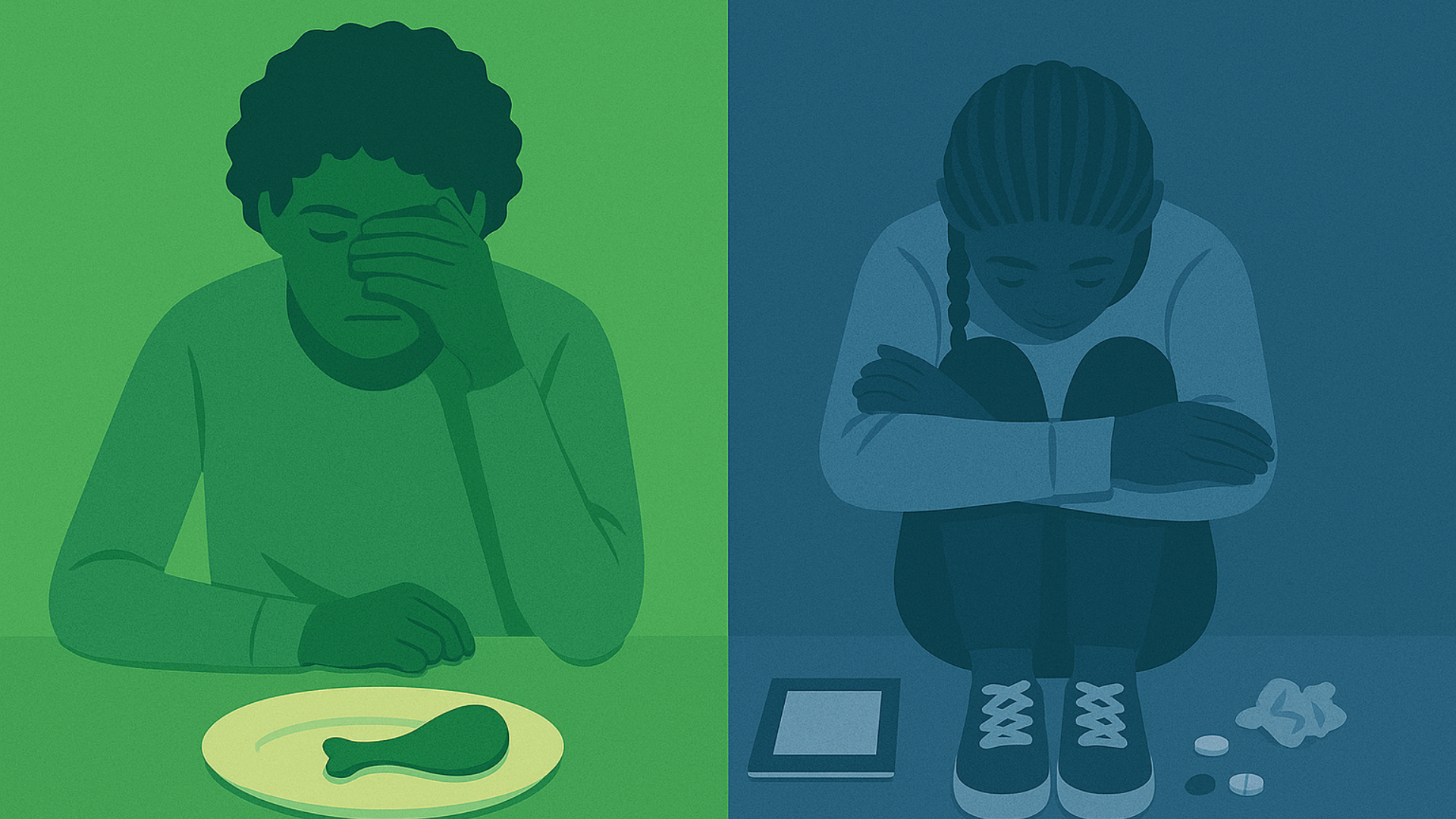How Autoimmune Diseases Can Hinder Mental Health

By Thrive Wellness Reno Pediatric and Adolescent Psychiatrist Jayleen Chen, M.D. and Thrive Wellness Reno Primary Care Physician, Internal Medicine Lorrie Oksenholt, D.O.
Autoimmune diseases affect 14.7 to 23.5 million Americans and involve abnormal functioning of the immune system which often leads to many debilitating and distressing physical ailments. Furthermore, mental health conditions may also result from autoimmune diseases and the medications used to treat them.
WHAT ARE AUTOIMMUNE DISEASES?
When operating optimally, the immune system attacks viruses, bacteria, and other harmful substances. As part of the immune system’s protection process against contaminants, white blood cells and antibodies prompt an inflammatory response that isolates foreign organisms and rids them from the body. An autoimmune disease occurs when the immune system malfunctions and begins to attack native body tissues and cells. There are over 80 different kinds of known autoimmune diseases, each of which can impact the body in unique ways.
Common autoimmune diseases include:
- Lupus: Occurs when the immune system attacks healthy tissues and organs, affecting many different body systems.
- Multiple sclerosis: Occurs when the immune system attacks the protective covering of nerves, which disrupts communication between the brain and the body.
- Psoriasis: Occurs when the immune system attacks healthy skin cells, causing a scaling, itchy, and dry skin patches to form.
- Rheumatoid arthritis: Occurs when the immune system attacks healthy cells in the joints, causing painful swelling.
- Type 1 diabetes : Occurs when the immune system attacks pancreatic cells which inhibits insulin production.
- Vasculitis: Occurs when the immune system attacks the blood vessels, impeding circulation and potentially cutting off blood supply to different parts of the body.
- Autoimmune diseases of the thyroid : Occur when the immune system attacks the thyroid, which can disrupt metabolic function throughout the body.
While the symptoms of autoimmune diseases vary by diagnosis, some common characteristics include:
- Fatigue
- Muscle and joint pain
- Swollen glands
- Fever
- Skin irregularities
- Abdominal pain
AUTOIMMUNE DISEASES AND MENTAL HEALTH
Some theories that link autoimmune disorders with mental health include:
- Severe infection and autoimmune disease may cause mood disorders.
- Mood disorders may create a susceptibility to infection or autoimmune disease.
- Mood disorders, severe infection, and autoimmune disorders may share common triggers.
The typical symptoms of exhaustion and chronic pain brought on by many autoimmune diseases can make it difficult for a person to be happy, motivated, and productive. In addition to these concerns, autoimmune diseases and related inflammation can also contribute to a host of psychological conditions. Substances involved in the inflammatory response, such as pro-inflammatory cytokines, may contribute to:
- Alterations in mood
- Anxiety
- Depression
- Cognitive effects
- Psychosis, characterized by a disconnect from reality
With some autoimmune diseases, such as multiple sclerosis, the immune system attacks parts of the central nervous system that impact mood and cognition. This may lead to neurocognitive changes, such as:
- Irritability
- Personality changes
- Depression
- Psychosis, characterized by a disconnect from reality
Some medications used to treat the symptoms of autoimmune disorders can also lead to psychiatric symptoms. For example, anti-inflammatory steroids may cause symptoms of:
Mental health conditions can create barriers to effectively coping with autoimmune diseases and vice versa. Tending to one’s mental health with professional support can improve a person’s ability to manage life with an autoimmune disorder.
INTEGRATED MENTAL AND PHYSICAL HEALTH CARE AT THRIVE WELLNESS
Founded in the principle that physical and mental health overlap and influence each other, Thrive Wellness’ approach to client care is collaborative, integrated, and comprehensive. Our interdisciplinary clinicians include primary care physicians, psychiatrists, therapists, occupational therapists, and dietitians who treat all aspects of individuals’ health concerns and empower them to flourish. Reach out to learn more about our health services .
While all Thrive Wellness locations offer interdisciplinary clinical teams who collaborate to treat eating disorders, perinatal mood and anxiety disorders (PMADs), and additional mental and behavioral health conditions, programs and services may vary by location.
About the Authors
Thrive Wellness Reno Child and Adolescent Psychiatrist Jayleen Chen, M.D.
Dr. Jayleen Chen is a child and adolescent psychiatrist with strong Northern Nevada roots. She brings extensive clinical leadership experience to Thrive, having served as the Chief of Staff and Medical Director at child and adolescent behavioral health centers in Reno. At Thrive, she treats children and adolescents struggling with behavioral health conditions. Dr. Chen completed her bachelor’s degree, medical doctorate, psychiatry residency, and child and adolescent psychiatry fellowship at the University of Nevada, Reno. Dr. Chen enjoys spending time with her family and friends. Her interests include cooking and baking, sports, hiking, and local theater.
Thrive Wellness Reno Primary Care Physician, Internal Medicine Lorrie Oksenholt, D.O.
After earning a bachelor’s degree in foods and nutrition at Walla Walla College in Washington state, Dr. Lorrie Oksenholt attended medical school at the University of Missouri-Kansas City where she obtained her medical degree as a doctor of osteopathic medicine. She completed her internal medicine residency through the University of Nevada, Reno where she also served as a clinical professor of medicine in both inpatient and outpatient settings. Additionally, Dr. Oksenholt worked as the chief of staff and acting medical director at Nevada Mental Health.
Dr. Oksenholt has been practicing internal medicine for over thirty years and has significant experience treating general health concerns as well as issues specific to women’s health and men’s health, respectively. Throughout her career, she has worked closely with clinical specialists to treat mental and behavioral health issues, including eating disorders. She is passionate about a whole-person approach to health care that addresses the mind, body, and heart for overall well-being. As an internal medicine physician at Thrive Wellness Reno, Dr. Oksenholt finds fulfillment in working alongside caring clinicians to foster holistic health for patients. She strongly believes in the power of preventative medicine and is committed to collaborating with those in her care to achieve optimal health.
Outside of her practice, Dr. Oksenholt enjoys taking advantage of the abundance of outdoor activities that Northern Nevada has to offer. She and her husband enjoy spending time together as well as with their children and grandchildren as often as possible. Dr. Oksenholt has many hobbies including glasswork, jewelry making, and quilting.
The post How Autoimmune Diseases Can Hinder Mental Health first appeared on Thrive Wellness.








